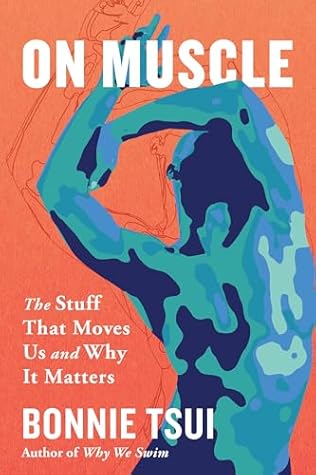More on this book
Kindle Notes & Highlights
Muscles are in a most intimate and peculiar sense the organs of the will. —G. Stanley Hall
“Muscle is muscle,” she tells me. “What’s different is the permission that society gives us to use it.”
Muscles are smarter than we think. They have different personalities. They remember things. When they change and grow, they influence other body systems to do the same. They’re complicated.
We want what we don’t have, or what we don’t perceive ourselves to have. Sometimes, when we take things to the extreme, we hurt ourselves in our aspirations. The way we reshape our bodies speaks of this poignantly human desire to change what we don’t like about ourselves.
Every day, my muscles are reminding me of things I need to remember about being a person. Today the lesson is clear: Though we are essentially who we are, we’re capable of change. Sometimes that process is painful, because, well, metamorphosis can be ugly. But we keep trying, so we can eventually get to something we find beautiful.
“There are certain emotions that are more about the body,” he tells me. “Joy, for example, which often involves jumping. Or love, which is about embracing, postural movements. Emotions are about action. And the preparation and intention for action.”
The Dutch social psychologist Batja Mesquita has said that emotions can be thought of as “relational acts between people,” rather than as simply mental states that reside within us. Emotions require exertion—they are expressed outwardly, so that they can make something happen. In addition, “many of our emotion terms are references to states of the body—we’re downcast, bent out of shape, head over heels, shaken up, down in the mouth,” according to the philosopher Nikhil Krishnan, who wrote a magazine story about Mesquita’s work. Our muscles showcase our inner lives in more ways than we might
...more
IN THE POEM “A Suit or a Suitcase,” Maggie Smith writes about the body at the end of life. Do we wear the body, or does it carry us? What if what I think of as me were distributed everywhere in that body, thoughts and feelings and the sense of self in the hands and feet as much as the head and chest? “Ideas are whispering in my wrists / and all along the slopes of my calves,” one stanza goes. What if we were equally present in all of those moving parts? What would they tell us about what we miss when we don’t acknowledge them?
“Why do we like muscle?” he says. “Muscle is the ability to change.”
No matter how old we get, the capacity to bounce back is there for us all.
Jan knew that the push-up likely wouldn’t have been called a push-up before a certain time in history, and she was right. After some time in the archives, she unearthed the English-language copy of Clias’s 1819 book, An Elementary Course of Gymnastic Exercises, first published in French, in which she found the exercise, back when Clias called it “Kissing the Ground in Equilibrium on the Arms and the Points of the Feet.” It still makes her smile when she says it.
What we learn in the process, Jan says, is that for the past two hundred years or so, humans haven’t been just doing push-ups; we’ve really been kissing the ground in equilibrium, through all the ups and downs—and it makes her feel stronger to know it.
Which brings us to grace. Anton Chekhov described grace as occurring “when someone expends the least amount of motion on a given action.” Grace, in part, is about restraint, physical calm in the face of uncertainty.


